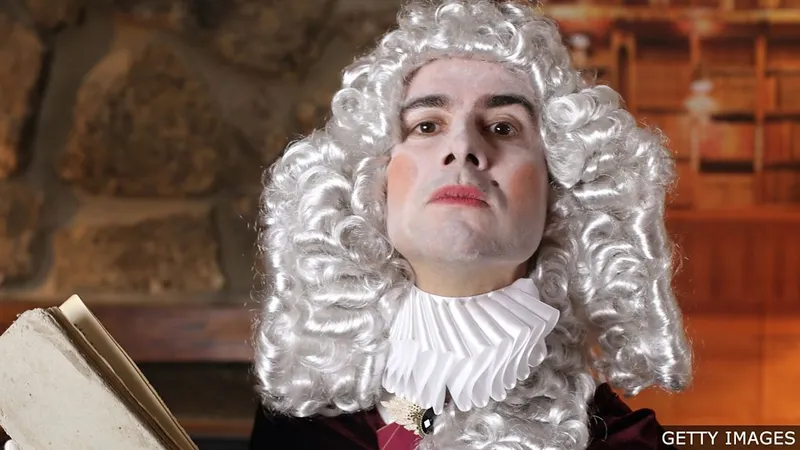**Jiaying
**Hello and welcome to The English We Speak. I’m Jiaying…
Neil… and hello, I’m Neil.
Jiaying Err… Neil, why are you wearing a big wig?
Neil Don’t you like it?
Jiaying Well, it’s certainly big!
Neil Thanks! I’m wearing it because you said we were talking about the word ‘bigwig’.
Jiaying A big wig… no, not that kind of wig, Neil! I’m talking about an important and powerful person.
Neil Oh, silly me!
**Jiaying
**Yes, a bigwig is an important person in a position of power.
NeilSo, Jiaying, don’t I look important and powerful in this wig?
Jiaying No – you just look silly. Let’s hear some examples of ‘bigwig’…
ExamplesWe’ve got some bigwigs in the office today, so we’re all on best behaviour.
My dad is a bigwig in the company, so he says he’ll help me get an internship.
A local bigwig has given her support for building a by-pass around the town.
**Jiaying
**This is The English We Speak from BBC Learning English, and we’re talking about the word ‘bigwig’ which describes an important and powerful person. So, Neil, do you know any bigwigs?
Neil Err no, unless you think I’m a bigwig when I wear this big wig?
Jiaying It’s certainly given you a big head. But no, I’m afraid you are a little wig! But a CEO of a company, an industry giant or the mayor of a town might be considered a bigwig.
NeilDo they wear wigs too?
Jiaying No, Neil! But the word comes from the 1700s when English men of authority wore wigs and those in higher power wore larger wigs.
Neil Oh, right – I’m off then.
Jiaying Where are you going?
Neil To get a bigger wig – maybe I’ll be more important, then!
Jiaying Hmm, I don’t think so. Bye.
